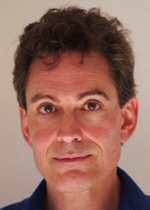Episode 146 :: David Chapman :: Enlightenment and Epistemology
David Chapman
Buddhist blogger David Chapman returns to the podcast to speak with us about how we can gain provisional understanding of what is true, from what is false.
We’ve had some recent discussion on the Secular Buddhist Association website about what is sometimes perceived as a dogmatic adherence to “scientism”. That is, we absolutely reject what is not clearly demonstrated in laboratory conditions, and refuse to believe anything experiential.
This is not quite the case. The position we incline towards, and there is a great deal of variation in our participants’ attitudes about this, is that we do not reject that which we can’t see or directly experience, it’s simply that we have no way to discern the veracity of such claims. As such, it would be problematic for us to accept them. We tend to take a middle approach of neither rejection nor acceptance, but simply set these claims aside until new information can help us arrive at a better understanding.
Our friend David Chapman has blogged about this very topic, and its applications in a Buddhist context. We invited him back to the podcast to have a conversation about epistemology, and what that means to our practice. David is educated and has worked in the fields of science, engineering, and business, which have each taught him to ask skeptical questions from their own perspectives. He applies this to his investigation of the Aro Buddhist tradition, and blogs about his findings, interests, and ideas on several blogs including Meaningness, Approaching Aro, and of course Buddhism for Vampires.
So, sit back, relax, and have a nice yak butter tea.
Podcast: Play in new window | Download
Quotes
“It is good to be skeptical, to ask “is this really true?,” to take nothing at face value. It is not good to blind yourself to what you can see is true, useful, or beautiful because you are afraid to trust.” — David Chapman
Web Links
- Meaningness
- Approaching Aro
- Buddhism for Vampires
- Epistemology and enlightenment
- What do you want Buddhism for?
- Eating an entire epistemologist
- Episode 88 :: David Chapman :: Buddhism for Vampires
Music for This Episode Courtesy of Rodrigo Rodriguez
The music heard in the middle of the podcast is from Rodrigo Rodriguez. The track used in this episode is “Beneath High Cliffs” from his CD, Traditional and Modern Pieces: Shakuhachi.

